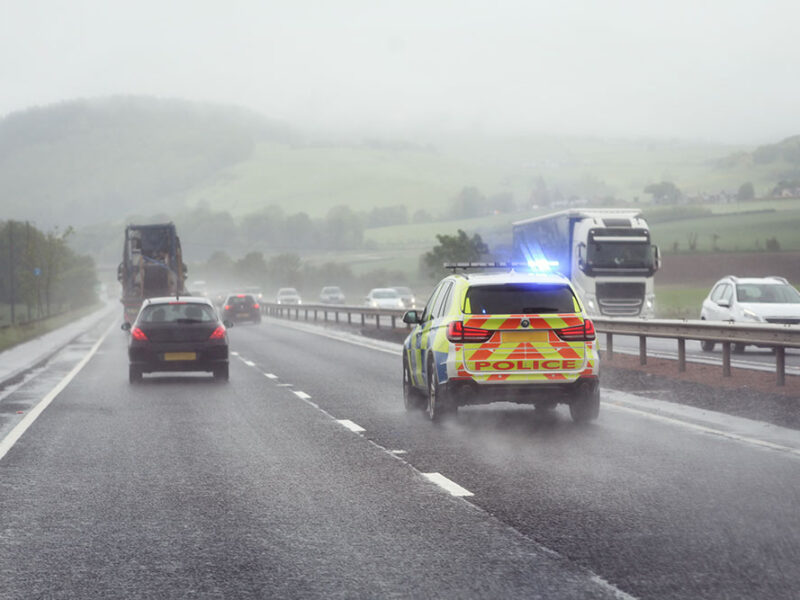As a result of the ongoing Covid-19 pandemic, on 31 March 2020 the Department for Transport announced that temporary changes have been put in place in relation to driver CPC requirements and enforcement, to allow drivers in limited cases to continue to drive with an expired driver qualification card (DQC) without the risk of enforcement action.
The changes relate to any driver whose current DQC expires in the period 1st March 2020 to 30th September 2020, in recognition of the fact that given the current social distancing requirements, attending periodic refresher training courses is likely to be difficult, if not impossible. The DfT has instructed both the DVSA and the Police not to take any enforcement action against any driver found to be driving whilst in possession of a DQC expiring within this date range.
However, many training providers are now providing remote training options and drivers are encouraged, where possible, to try to complete their periodic training via online or remote courses where personal course attendances are not possible. The relaxation is designed to assist those that cannot attend DCPC refresher courses due to restrictions caused by Covid-19, rather than as a means by which drivers can simply put off the training requirements - and as things presently stand, from 1st October 2020 full enforcement resumes, so anyone found to be driving with an expired DQC from that date can expect to face enforcement action in the usual way.
Any driver with a DQC which expired before 1st March 2020 is not covered by this relaxation and thus must complete the required 35 hours of periodic training and obtain a new DQC before they are permitted to drive a relevant goods vehicle or public service vehicle for any purpose which is in-scope of the CPC regulations.
For further clarification on this matter of any other queries on your transport operation call us on 01279 818280 or click here to send an email.
Published: 27th April 2020

More News and Insight

Abnormal Loads – Calls for Changes to Law for Abnormal Loads Needing Police Escorts
Recently in the trade press there have been articles reporting calls from the UK’s Heavy Transport Association (HTA) for the law to be changed regarding police escorting of abnormal loads….

DVLA Confirms New Rules for Professional Drivers Living with Diabetes
From Friday 7th November 2025 the rules were changed to allow diabetic drivers of PSV’s and HGV’s to monitor their glucose levels using Continuous Glucose Monitoring Systems….

Carrying Your Own: Horses to Widgets? Do you Need an O Licence?
The DVSA recently released a press release about the rules for transporting horses in horse boxes and trailers following an update on the guidance about using a tachograph in the vehicle being used to transport the animals…

The Senior Traffic Commissioner’s Statutory Guidance
The value of The Statutory Guidance Documents and the importance to operators, nominated transport managers and other professionals involved in the operation and driving of large commercial vehicles cannot be overstated…

Walkaround Checks – Where Road Safety Starts
Every day, often before the sun is above the horizon, hundreds of thousands of commercial vehicles are started up by their drivers and then they head out on to the UK’s road network to transport goods or passengers from one point to another, often with demanding time constraints thrown into the mix…

Traffic Commissioner’s Annual Report 2024/25: “Don’t Look Back in Anger”
Time has flown by and once again we find that the schools are back after the long summer break and the Office of the Traffic Commissioner has issued its annual report to the Secretary of State, providing a review of the year…

An Apple a Day to Keep the DVLA Away – A review of the DVLA’s Rules on Health Checks for Professional Drivers
There has been some discussion in the industry trade press recently that has highlighted proposed changes to how the disease of diabetes is monitored in professional drivers by the DVLA. One article in RouteOne Magazine stated that…

Light Goods – Heavyweight Industry: The DVSA’s New LGV Strategy
While relatively small in overall physical size light goods vehicles (LGVs) are now a large part of the UK road transport industry. There are currently estimated to be over 5.1 million light goods vehicles on UK roads today…

Employment Law Update – A tale like Scylla & Charybdis
Operators currently face their own real time nightmare in the form of a modern day version of the Greek mythological tale of Scylla and Charybdis (where sailors faced a narrow strait through which they had to pass which had a monster on one side and a whirlpool on the other!)…

Labour Government – Employment Rights Bill – What Will It Mean for Transport Businesses?
In October 2024 the Deputy Prime Minister, Angela Rayner set out her intention to reform the employment rights held by employees in the UK. In a press release issued at the time she is quoted a saying…

Revisiting the DVSA’s Guide to Maintaining Roadworthiness
In April 2025 the Driver & Vehicle Standards Agency (DVSA) issued the latest edition of its Guide to Maintaining Roadworthiness.

The Wheels on the Bus go Round & Round….but how do they Stop?
At the tail end of 2024 a Public Inquiry was held in front of Traffic Commissioner Kevin Rooney where the subject of brake maintenance practices was called into question…
